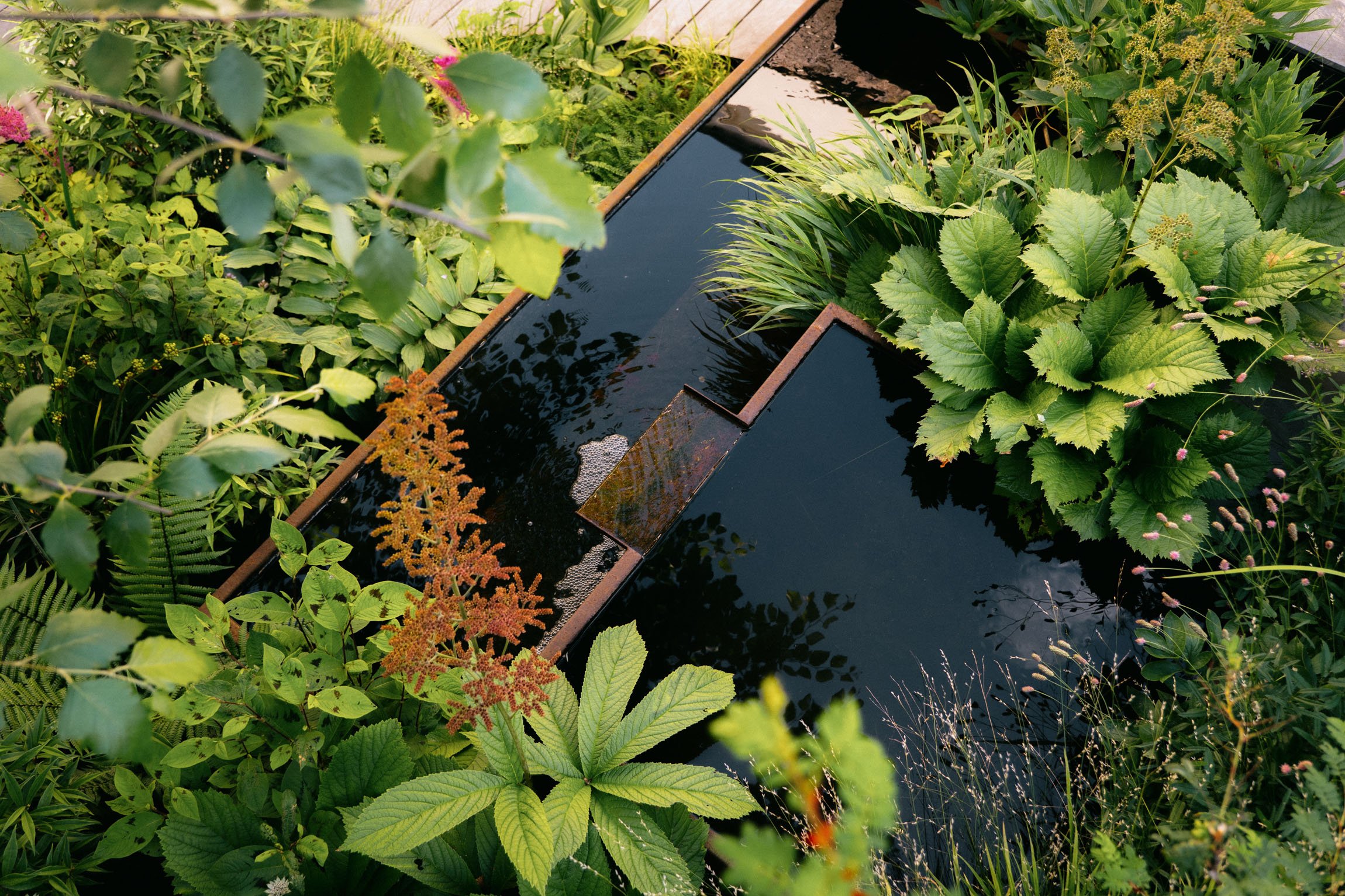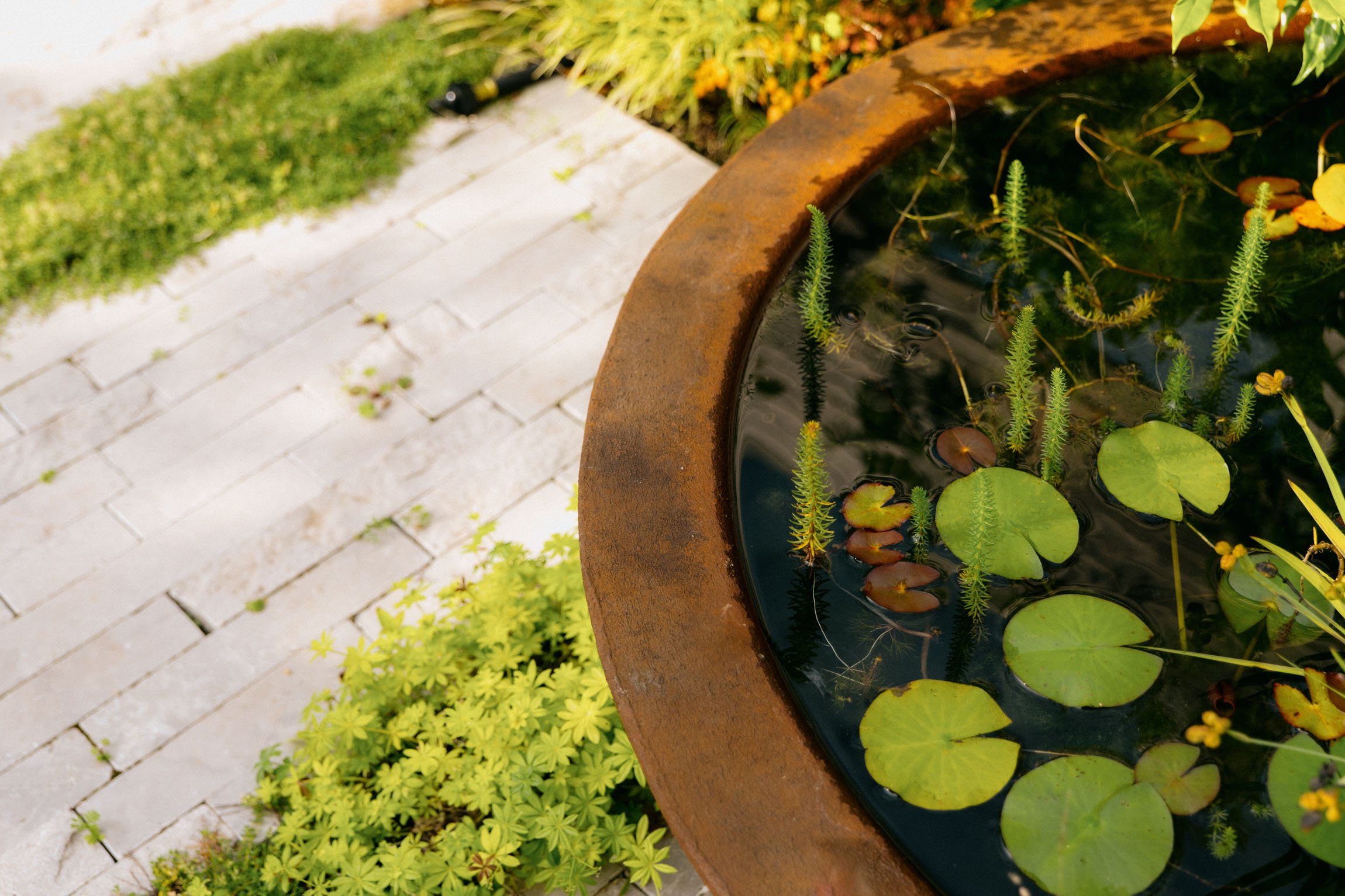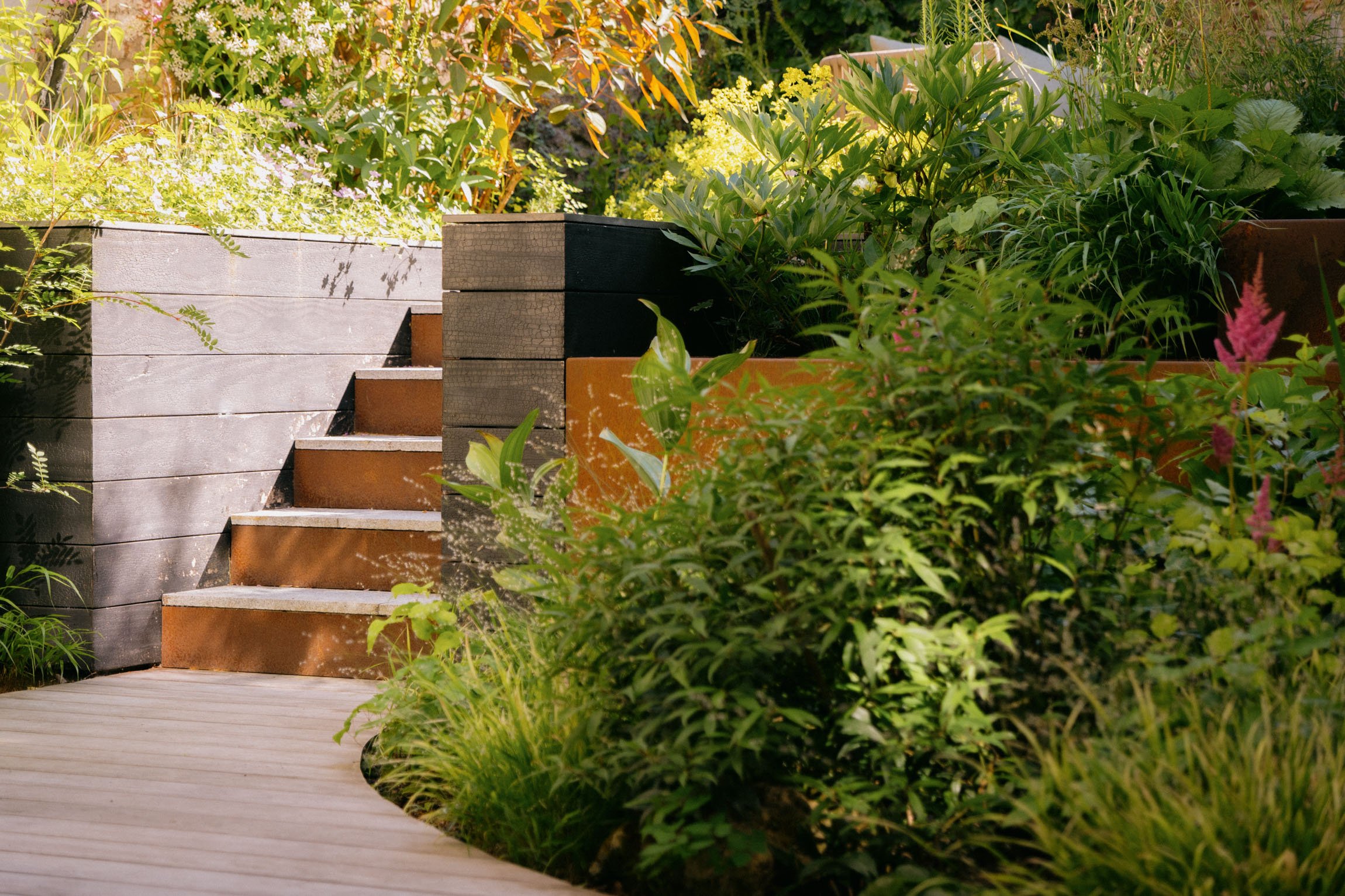
Japanese garden design UK:
Transform your outdoor space
Experience the tranquility of Japanese garden design in the UK
The essence of Japanese gardens
In the world of garden design, Japanese gardens hold a unique and special place. Known for their serene atmosphere and immaculate attention to detail, these gardens integrate various elements that work together to create balance and harmony. Here at Innes Design Studio, we specialise in Japanese garden design, ensuring every aspect of your outdoor space captures the essence of traditional Japanese gardens while embracing contemporary trends in the UK.
Key elements of Japanese garden design
Japanese garden design comprises a number of distinct elements which, when combined, create a harmonious and tranquil space that promotes reflection and relaxation. To understand the beauty and philosophy behind Japanese gardens, it is important to familiarise oneself with these key elements:
Water: In Japanese culture, water signifies purification and life. Water features such as ponds and streams are integral to Japanese gardens, creating a calming atmosphere through soothing sounds and reflections.
Stone: Stones are a crucial component representing permanence and stability. They can be used as stepping stones, pathways, edgings, and arrangements to add visual interest and structure to the garden. The careful selection and placement of stones embody the Japanese concept of 'mitate' – finding beauty in the ordinary.
Plants: A variety of beautifully pruned trees and shrubs symbolise different aspects of nature. Evergreens such as pines represent endurance and strength, while the seasonal changes of deciduous trees like maples evoke a sense of renewal and the passage of time.
Structures: Japanese gardens often feature authentic architectural structures, such as pagodas, lanterns, and gates. These structures blend seamlessly with the natural environment, accentuating the peaceful ambience of the garden.
Pathways: Pathways guide visitors through the garden, ensuring they experience the carefully designed spaces from different angles and perspectives. Winding, unpaved paths encourage slow, contemplative walks, and encourage a deeper appreciation of the garden’s intricacies.
Styles of Japanese gardens
Japenese gardens can be broadly categorised into four styles, each featuring its own unique characteristics and traditions:
Karesansui: Also known as Zen or rock gardens, Karesansui gardens feature carefully arranged stones and gravel, representing water and islands. The simplicity of these gardens is designed to inspire meditation and reflection.
Tsukiyama: These gardens recreate miniature landscapes, complete with mountains, rivers, and forests. Tsukiyama gardens often feature waterfalls, ponds, and lanterns, immersing visitors in a natural environment.
Chaniwa: Chaniwa gardens are associated with the Japanese tea ceremony and are typically found in traditional tea houses. They comprise rustic, simple features, including a stone water basin for ritual cleansing and stepping stone pathways.
Roji: Roji gardens are designed as the entrance to tea houses, guiding guests through a serene path to prepare them for the tea ceremony. They often feature lanterns, stone basins, and rustic wooden gates.
Our approach to Japanese garden design in the UK
At Innes Design Studio, we understand the importance of capturing the essence of Japanese garden design while adapting it to the UK climate and our clients’ needs. Our approach comprises the following stages:
Consultation: We begin by discussing our clients’ vision for their Japanese garden, which helps us identify key elements and design preferences. This stage allows us to establish a budget and timeline for the project.
Site Analysis: We visit the property to assess its unique features and constraints. This enables us to determine the best layout and design possibilities for the garden.
Concept Design: Based on our consultations and site analysis, we develop a concept design that incorporates the desired elements of a Japanese garden. This design includes sketches and visualisations to help our clients envision the final product.
Detailed Design: Once the concept design is approved, we create a detailed design that specifies the exact layout, planting scheme, and construction materials. We also provide a bill of quantities to ensure the project stays within budget.
Project Management: Throughout the construction process, we liaise with contractors and suppliers to ensure the garden is built according to our precise design specifications.

Why choose Innes Design Studio for your Japanese garden project?
When you choose Innes Design Studio for your Japanese garden design, you benefit from our extensive experience and commitment to quality. Our bespoke approach guarantees that your garden is tailored to your individual needs and preferences while reflecting the timeless elegance of Japanese garden design. From small terraces to large country estates, our team has the expertise and passion to create enchanting Japanese gardens that will be treasured for years to come.
Transform your outdoor space into a serene oasis with Japanese garden design from Innes Design Studio. Contact us today to discuss your project and discover the peace and beauty of a Japanese garden.
Frequently Asked Questions
-
Japanese garden design in the UK combines traditional Japanese aesthetics with the unique climate and plant species of the UK, creating a harmonious blend of East and West.
-
At Innes Design Studio, we work closely with you to understand your vision and create a design that suits your space and preferences, incorporating key elements of Japanese garden design.
-
Common elements of Japanese garden design include water features, stone lanterns, ornamental carp (koi), and a variety of plants like moss, bamboo, and cherry blossoms. A sense of balanced asymmetry.
-
Our process begins with a consultation to understand your vision. We then create a design, work with you on revisions, and finally, implement the design, transforming your space into a serene Japanese garden.
-
es, Japanese gardens can be adapted to various climates. We select plants and materials that can thrive in the UK climate while maintaining the aesthetic of a Japanese garden.




